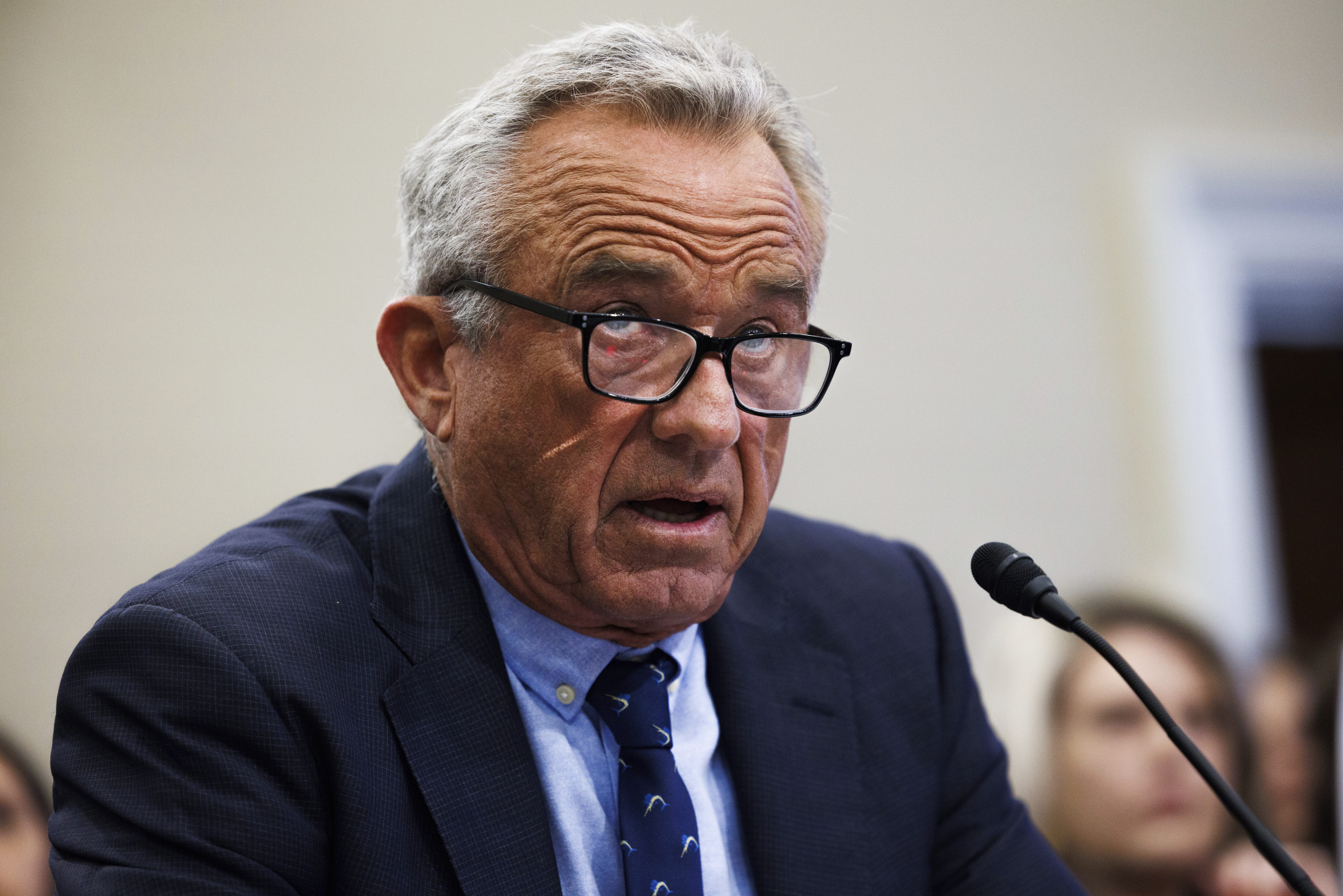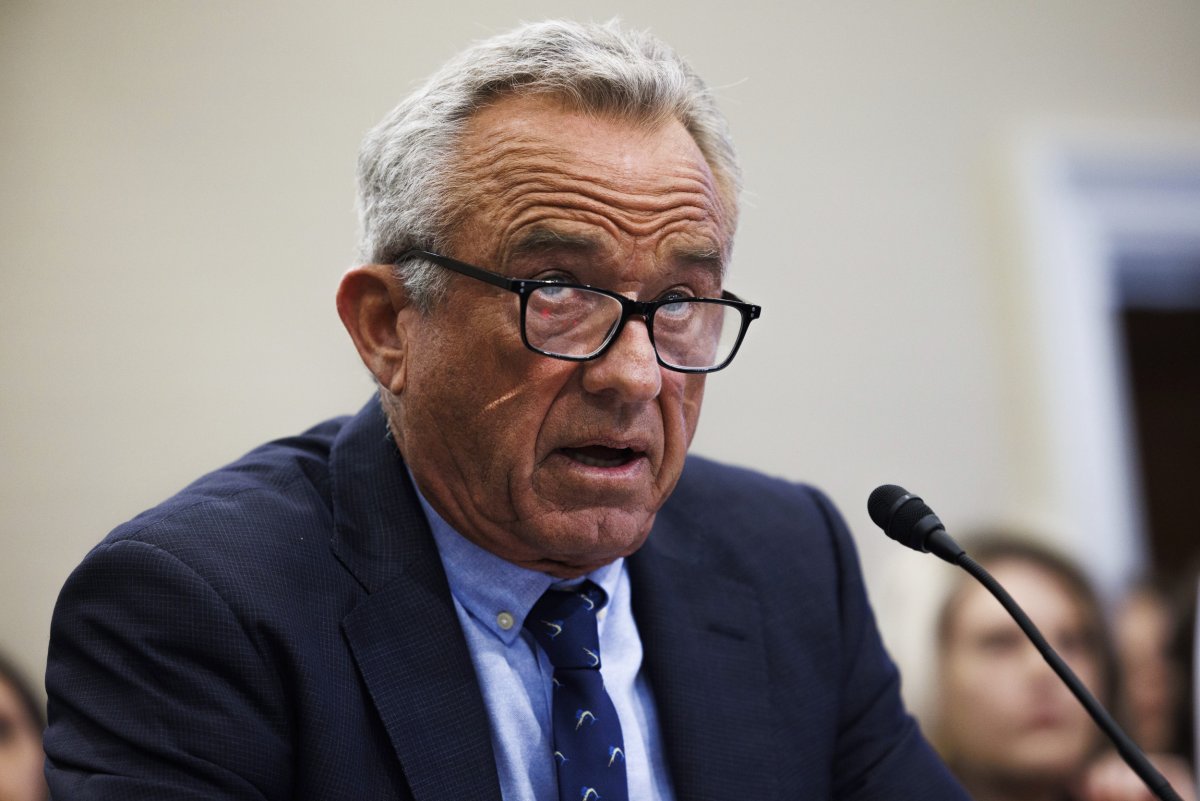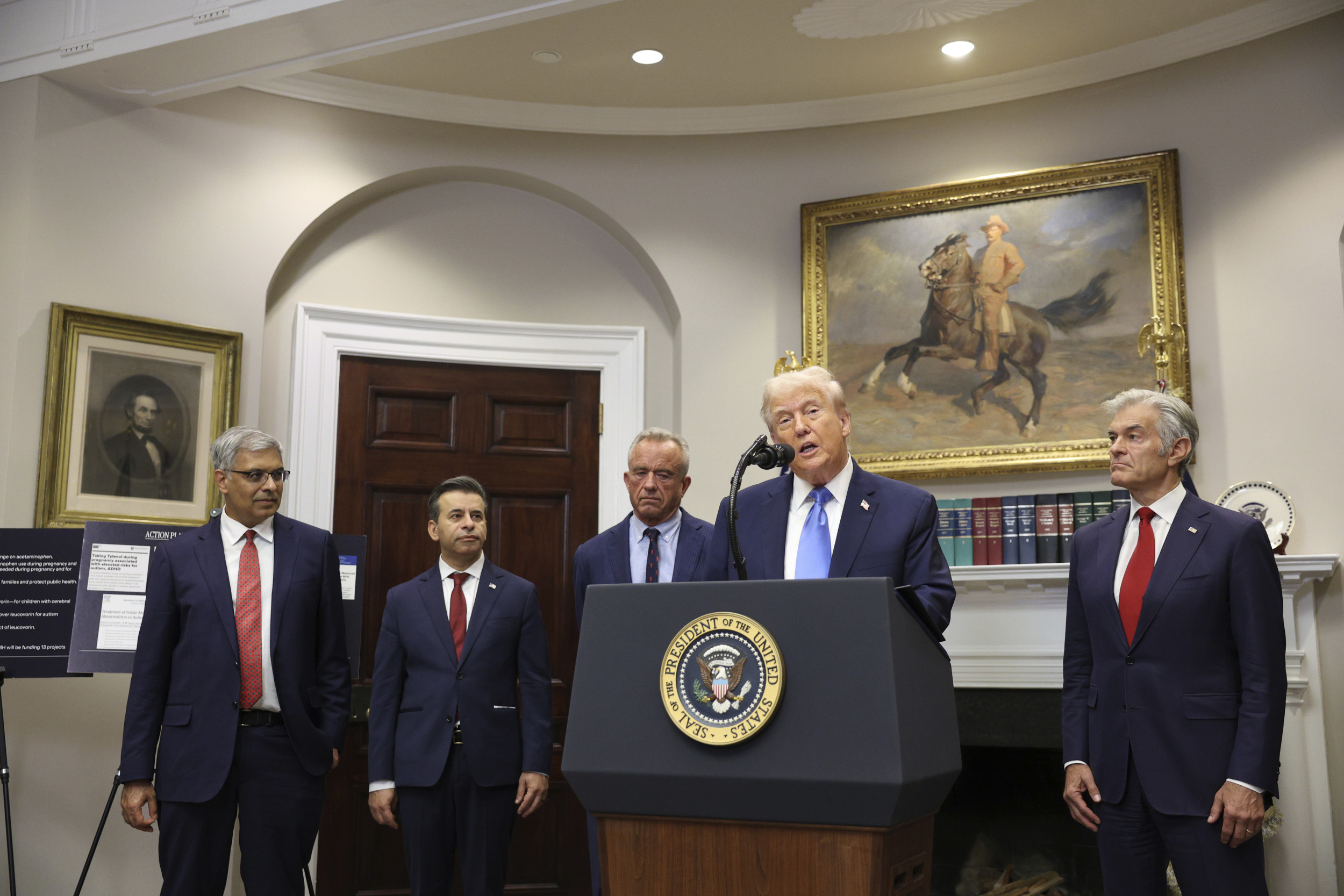
At least six former and current Republican officials have criticized Robert F. Kennedy Jr. as the health and human services secretary faces escalating scrutiny.
Republican senators and figures linked to President Donald Trump‘s first administration have all publicly questioned Kennedy over his policies and running of the department in separate statements.
Newsweek contacted the HHS by email outside of normal business hours to comment on this story.
Why It Matters
Recently Kennedy, who assumed the HHS leadership role in February, has been met with growing disapproval for his views and handling of the department.
The Centers for Disease Control, a HHS agency, fired 600 employees in August and last month the White House dismissed CDC Chief Dr. Susan Monarez and replaced her with Kennedy’s deputy Jim O’Neill, sparking a backlash from health officials and lawmakers.
Meanwhile, Kennedy, who previously ran an anti-vaccine group and campaigned on ending vaccine mandates, angered health officials when he cancelled $500 million in funding for mRNA vaccines.

Photo by Aaron Schwartz/Sipa USA)(Sipa via AP Images
Amid this pressure, Kennedy testified before the Senate Finance Committee last week where he was grilled on his policy decisions. While the White House has signalled its support of Kennedy, further criticism by fellow Republicans might put pressure on Kennedy to resign, or on Trump to dismiss him.
What To Know
These are the six Republican officials, past and present, who have criticized Kennedy:
1. Senator John Barrasso, Wyoming
“I’m a doctor. Vaccines work,” Barrasso said at Kennedy’s hearing. “Secretary Kennedy, in your confirmation hearings, you promised to uphold the highest standards for vaccines. Since then, I’ve grown deeply concerned.”
2. Senator Bill Cassidy, Louisiana
Cassidy questioned Kennedy for cancelling mRNA vaccine research.
3. Senator Thom Tillis, North Carolina
Tillis said some of Kennedy’s statements “seem to contradict what you said in the prior hearing.”
3. Brett Giroir, the assistant secretary for health in the first Trump administration
Giroir told the Washington Post on Friday that ending funding for mRNA vaccine development was “going to make the country vulnerable” and that Kennedy’s vaccine stance was doing “tremendous damage” to public health.
4. Senator Lisa Murkowski, Alaska
Murkowski told reporters last week that Kennedy’s direction on vaccines “goes against some of the commitments that he made to me and presumably to others.”
5. Senator John Thune, South Dakota
Thune reacted to Monarez’s ousting, telling reporters: “He’s got to take responsibility. We confirm these people, we go through a lot of work to get them confirmed, and they’re in office a month?”
6. Jerome Adams, the surgeon general in the first Trump administration
Adams told CNN that Kennedy is “putting us at risk” and “endangering America at large” because of his vaccine policy. Asked whether Trump should fire him, he responded: “I absolutely believe that he should, for the sake of the nation.”
It is not only Republicans who have spoken out against Kennedy. Last week more than 1,000 current and former HHS employees signed an open letter calling for Kennedy to resign. They said his actions “endanger the nation’s health.”
Similarly, writing in an essay for the New York Times, nine former CDC officials said Kennedy’s HHS leadership was “endangering” the health of Americans.
Kennedy is also facing a lawsuit from a coalition of six medical organizations over his decision to revoke COVID-19 vaccine recommendations for children and pregnant women.
However, Kennedy has also been defended by some members of the GOP including Kansas Senator Roger Marshall, Kentucky Senator Rand Paul, and Wisconsin Senator Ron Johnson. During Thursday’s hearing, they argued that evidence linking vaccines to certain diseases had been suppressed.
“President Trump chose Robert F. Kennedy Jr. to be a disrupter to the CDC, and that’s exactly what he’s doing,” Marshall said in an interview with CBS. “He’s focused on making the CDC more transparent, to make it more trustworthy right now. Right now, Americans don’t trust the CDC, so he is literally turning that place upside down.”
What People Are Saying
Speaking to Newsweek, Scott Lucas who teaches international politics at University College Dublin said: “The question that might determine RFK Jr.’s future is how much political capital the Trump administration is willing to invest to keep him there.”
“Republicans in the Senate have always had doubts about RFK” because of his stance on science and vaccines, he added, but backed him when he was nominated to lead the HHS “because they didn’t want to hand the administration a defeat in its first weeks in office.”
Democrats on the Senate Finance Committee released a statement following Kennedy’s testimony, calling him “unfit to serve” in his role. “The actions Robert Kennedy has taken since he was sworn in reinforce the danger he poses to the health of America,” the committee members wrote, in part.
“Robert Kennedy has failed to protect the health of the American people and endangers the lives of all Americans, particularly children, people with disabilities, and vulnerable Americans,” the statement added. “Robert Kennedy must resign, and if he doesn’t, Trump should fire him before more American families are hurt by his reckless disregard for science and the truth.”
HHS Communications Director Andrew Nixon previously told Newsweek: “Secretary Kennedy has been clear: the CDC has been broken for a long time. Restoring it as the world’s most trusted guardian of public health will take sustained reform and more personnel changes.”
After Kennedy’s hearing Trump called him ” a very good person” who “means very well” and is a “different” thinker.
“It’s not your standard talk. I would say that, and that has to do with medical and vaccines,” Trump said. “But if you look at what’s going on in the world with health, and look at this country also with regard to health—I like the fact that he’s different.”
What Happens Next
A backlash to Kennedy and his policies will likely continue. Whether or not it causes him to resign, or for Trump to turn against him, remains to be seen.




